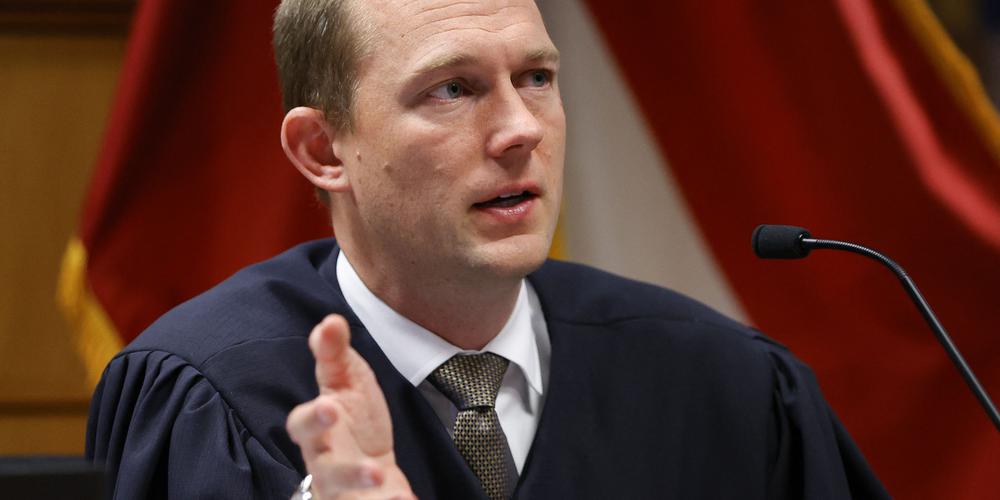Michael Schumacher's Driving Style: Aggressive Or Unfair?

Table of Contents
The "Aggressive" Argument: Strategic Mastery or Ruthless Tactics?
Many argue that Schumacher's aggressive driving style wasn't merely reckless; it was a calculated strategy reflecting exceptional racecraft. This section examines the elements supporting this perspective.
Schumacher's Ruthless Overtaking Techniques
Schumacher was a master of wheel-to-wheel racing, employing daring overtaking maneuvers that often left opponents bewildered. His willingness to take risks, pushing the boundaries of what was considered acceptable, frequently resulted in spectacular overtakes.
- 1994 Brazilian Grand Prix: His aggressive passing moves, though sometimes bordering on the edge, showcased his determination and skill in gaining crucial positions.
- 1997 Jerez Grand Prix: While controversial, his aggressive driving in this race highlighted his relentless pursuit of victory, even if it meant pushing the limits.
- Multiple Instances: Numerous other races demonstrated his prowess in overtaking, often employing late braking and close-quarters maneuvering. These tactics, while effective, were often criticized for being exceptionally risky.
The psychological impact of his aggressive style should also be considered. His relentless pressure on rivals, a form of psychological warfare, often forced errors and allowed him to capitalize on opponents' mistakes. This intimidation factor was a significant part of his success.
The "Leave No Room" Philosophy
Schumacher famously employed a "leave no room" philosophy in defending his position. This meant minimizing the space available to his rivals, making overtaking extremely difficult. While some view this as a masterful defensive driving technique, maximizing track position and racecraft, others see it as excessive and dangerous.
- Strategic Advantage: This approach was undeniably effective in securing track position, a crucial factor in Formula 1 races.
- Potential for Collisions: However, this tactic's inherent risk led to several notable collisions, sparking controversy and raising questions about sportsmanship.
- Counterarguments: Critics argued that Schumacher frequently pushed this strategy beyond acceptable limits, sacrificing fair competition for personal gain.
The "Unfair" Argument: Crossing the Line of Acceptable Competition?
Conversely, a significant portion of the F1 community argues that Schumacher's driving style frequently crossed the line into unfair and unsportsmanlike conduct. This section explores the incidents supporting this viewpoint.
Controversial Incidents and Penalties
Several incidents throughout Schumacher's career cemented the perception of him as a driver willing to bend (or break) the rules to achieve victory. These events often resulted in penalties or significant controversy.
- 2006 Canadian Grand Prix: His collision with Fernando Alonso significantly impacted the race's outcome and led to widespread criticism.
- 1997 Monaco Grand Prix: This race is infamous for an incident involving Schumacher and Jacques Villeneuve, highlighting the intensity and controversy surrounding his aggressive driving.
- Numerous Other Incidents: A plethora of other incidents, marked by questionable driving maneuvers and subsequent penalties, fueled the debate around the fairness of his approach.
The Role of Intentionality
A central question surrounding Schumacher's controversial actions is whether they were intentional or the result of aggressive, albeit unintentional, mistakes. Determining intent is difficult, as many incidents occurred during high-pressure racing situations.
- Arguments for Intentionality: Critics point to repeated instances of aggressive driving, suggesting a pattern of intentional fouls designed to eliminate or hinder rivals.
- Arguments Against Intentionality: Defenders argue that the intensity of Formula 1 racing frequently leads to incidents, and many of Schumacher's actions were merely hard but unintentional racing.
- Perspectives: The interpretation of his intent remains a point of contention, with some viewing him as ruthless, and others as simply a highly competitive driver operating at the extreme edge of the rules.
The Legacy of Schumacher's Driving Style: Impact on Modern F1
Schumacher's driving style, both its successes and controversies, has undeniably left its mark on Formula 1.
Influence on Younger Drivers
His aggressive style has undoubtedly influenced younger drivers, both positively and negatively. Some have emulated his determination and pursuit of perfection, while others have learned from his mistakes, understanding the consequences of overly aggressive tactics.
Changes in Rules and Regulations
The controversies surrounding Schumacher's driving likely contributed to stricter regulations and rule changes in Formula 1, aiming to enhance safety and promote fairer competition. This evolution reflects a direct impact of his legacy on the sport's governing body's policies.
Conclusion
Michael Schumacher's driving style remains a subject of intense debate. While his aggressive tactics undeniably contributed to his seven world championships, showcasing extraordinary skill and a relentless pursuit of victory, they also led to numerous controversial incidents and penalties. His legacy is a complex blend of brilliance and controversy, making him a figure both admired and criticized within the world of Formula 1. His impact on the sport extends beyond his achievements, influencing subsequent driving styles and leading to crucial changes in rules and regulations. What are your thoughts on Michael Schumacher's racing tactics? Discuss your perspective on Michael Schumacher's driving style in the comments below!

Featured Posts
-
 Zheng Qinwen Triumphs Over Sabalenka In Italian Open Quarterfinal
May 26, 2025
Zheng Qinwen Triumphs Over Sabalenka In Italian Open Quarterfinal
May 26, 2025 -
 Hugo De Waha Laureat De La Bourse Payot Pour Jeunes Journalistes
May 26, 2025
Hugo De Waha Laureat De La Bourse Payot Pour Jeunes Journalistes
May 26, 2025 -
 Mathieu Van Der Poels Custom Canyon Aeroad Tirreno Adriatico Race Bike
May 26, 2025
Mathieu Van Der Poels Custom Canyon Aeroad Tirreno Adriatico Race Bike
May 26, 2025 -
 Pilbaras Future Rio Tinto Responds To Forrests Criticism
May 26, 2025
Pilbaras Future Rio Tinto Responds To Forrests Criticism
May 26, 2025 -
 Real Madrid In Doert Yildiz Oyuncusu Hakkinda Sorusturma Baslatildi
May 26, 2025
Real Madrid In Doert Yildiz Oyuncusu Hakkinda Sorusturma Baslatildi
May 26, 2025
Latest Posts
-
 Bordeaux Lutte Contre Le Maintien De La Piste Secondaire De L Aeroport
May 30, 2025
Bordeaux Lutte Contre Le Maintien De La Piste Secondaire De L Aeroport
May 30, 2025 -
 Piste Secondaire De L Aeroport De Bordeaux Appel A Manifester
May 30, 2025
Piste Secondaire De L Aeroport De Bordeaux Appel A Manifester
May 30, 2025 -
 Manifestation A Bordeaux Les Opposants A La Piste Secondaire De L Aeroport Mobilises
May 30, 2025
Manifestation A Bordeaux Les Opposants A La Piste Secondaire De L Aeroport Mobilises
May 30, 2025 -
 A69 Un Contournement De La Justice Pour Revoir Le Projet Autoroutier
May 30, 2025
A69 Un Contournement De La Justice Pour Revoir Le Projet Autoroutier
May 30, 2025 -
 Aeroport De Bordeaux Manifestation Contre Le Maintien De La Piste Secondaire
May 30, 2025
Aeroport De Bordeaux Manifestation Contre Le Maintien De La Piste Secondaire
May 30, 2025
